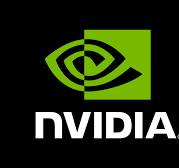June linkstack
Surfing the internet, smooshing words, saying sayonara to the Doge dog, and more.
Dear readers: There are lots of links and images in this newsletter, which means it probably exceeds Substack’s email limits. To read the whole thing, use your browser or install the Substack app. (Always a good idea anyway, because I sometimes find and correct tyyppos typos after the email is distributed.)
Hello again to longtime readers, and greetings to the many new subscribers who’ve signed on since my May linkstack. Here’s a quick orientation:
This is what “fritinancy” means. (Yes, it’s a “real word.”)
If you’re interested in names, check out Naming Briefs, my occasional critiques of names in the news (or new to me). More Naming Briefs coming soon!
If you want to know what Sets! My teeth!! On edge!!!, read this.
If you want a quick overview of everything I’ve written here since August 2023, check out the archive.
On to1 the links!
Why do we “surf” the internet?
In 1992, people often talked about “mining” or “cruising” the internet. But when Jean Polly, a librarian and early computer adopter in Liverpool, New York, was asked to write an article for the Wilson Library Bulletin explaining the internet to other librarians, she thought she could come up with a more vivid verb. From a March 2024 NPR story:
She needed a good metaphor as to what navigating the internet felt like in the early days. "It was hard. You needed some skill to do it, but it was fun," Polly said.
Her mousepad happened to have a picture of a surfer and said “information surfer,” a phrase that was already floating around. The words just clicked for her.

But wait, there’s more! Although Polly, who retired in 2014, was inducted into the Internet Hall of Fame in 2019 for her contribution, “surfing the web” may have a slightly earlier origin. Read the Surfer Today story. Bonus link: A 2019 interview with Jean Polly (video).

What I’ve been listening to
The smooshing episode on the excellent Lingthusiasm podcast explores “the history of portmanteau words like motel and chortle, the poem Jabberwocky, and why some portmanteaus, like Kenergy from Ken + energy, sound really satisfying, while others (wonut??) just don't catch on at all.”
The Subtitle podcast episode about how Basque (Euskara) speakers saved their language — which is unrelated to any other spoken language — is just fascinating.
What I’ve been reading on Substack
by the brilliant Israeli writer Etgar Keret. Here’s his introduction: “As a writer who doesn't have many hobbies, I write almost every day. Super-short weird stories, poems, thoughts about writing, ideas for screenplays – they all swirl around in my Alphabet Soup pot.” Translated from the Hebrew by Jessica Cohen (read about her life and work here).’s newsletter is a new discovery, although I’d read her contribution to the fabulous Oldster Substack when it was originally published last year. She’s 83 and the author of a memoir, Safekeeping. Here’s a taste: “Falling in Love with Inanimate Objects.” writes The Honest Broker, which I read faithfully even when the subject (say, jazz) isn’t at the top of my favorites list. His writing and thinking are just that good. Here’s his take on “how the music business can tame the dangerous AI dragon.”AI: boon or bane?
A new AI-powered service called Monika — get it? moniker? — “promises users 20 solid brand names in five days for a flat fee of $5,000.” Yes, they’re automatically checked for trademark availability. (Fast Company)
Brand consultant Rob Meyerson took a balanced look at Monika and concluded that while it’s “a step in the right direction,” it has some serious shortcomings. (How Brands Are Built)
Speaking of shortcomings, meet “slop,” the term being used to describe dubious AI-generated content. “Google suggesting that you could add nontoxic glue to make cheese stick to a pizza? That’s slop. So is a low-price digital book that seems like the one you were looking for, but not quite. And those posts in your Facebook feed that seemingly came from nowhere? They’re slop as well.” (New York Times gift link)
Memento mori
Via
’s excellent newsletter, Magic + Loss, I learned of WeCroak, an app that sends you daily reminders to contemplate your mortality. I love everything about this: the death focus, the WeCroak name (No bullshit euphemisms! Sly allusion to WeWork!), and the well-named brand extension Leap, a subscription service with additional tools and reminders.Baby names
The headline is “Have We Reached Peak Baby Name?” and the lede begins “After the birth this spring of her third child, a baby girl2 named Whimsy Lou . . . ” You may want to quit reading right there, but here’s a gift link anyway. (New York Times)
What makes a baby name trendy? Its suffix. Example: By 2010, nearly four in ten newborn boys in the U.S. were given names that end in “-n”: Jason, Mason, Carson, Jackson, Brandon, etc. “Names have actually gotten less distinctive over time,” writes reporter and data researcher Daniel Wolfe, “with nearly half of all baby names now following identifiable suffix trends.” Baby-name maven Laura Wattenberg calls it “lockstep individualism.” (Washington Post gift link) Hat tip: Diane Fischler.
Bat names
Not the winged kind, the wooden kind. Who knew their names were so evocative? The Zinzin blog, that’s who. Here’s an analysis, from Anderson Rocketech to Warstic Cloudbreak.
Girl talk
(“Mister Slang”) on the lingo of 1920s flappers, “the first ever unarguably women-coined slang.” It’s in three parts; here’s Part 1.Death of a doge
Kabosu, the Shiba Inu dog that inspired a thousand “doge” memes (“so amaze” “much wow”), died in May. She was 18. She had been named after a citrus fruit popular in Japan, where she lived her long life. Read Kyle Chayka’s remembrance for The New Yorker: “The fact that Doge was not pre-optimized for fame may be what sets it starkly apart from what tends to succeed on the Internet today.”
Trump Too Small
California lawyer Steve Elster failed to get trademark protection for “Trump Too Small,” the motto he uses on a line of T-shirts, because the USPTO prohibits marks that use the names of living people without their consent. He took his appeal all the way to the U.S. Supreme Court, and earlier this month he lost there as well. But sometimes a loss is a win: A lot more people now know about Elster’s T-shirts, which come in Medium, Large, Extra-Large, and “the size of Trump’s manhood, Small.” (Politico)

How QAnon became everything
Yes, this is a story about politics, conspiracies, and disinformation. But there’s a branding angle. Remember the hysteria over the nonsensical notion that online furniture retailer Wayfair “was selling children for sexual abuse via armoire orders”? Remember the panic over a Balenciaga ad campaign “showing small children with purses made to look like teddy bears wearing bondage straps”? Excellent deep dive from Ali Breland at Mother Jones.
Hot company, odd logo
“It’s rare these days to find a big company with a logo like Nvidia’s,” writes design critic James I. Bowie. “Consisting of a somewhat wonky variable-width green spiral approximating an eye, it features an overlaid green square in which the spiral is reversed out, resulting in a starkly contrasting pattern that produces a somewhat unsettling vibration effect reminiscent of Op Art.”
And the company name?
The Nvidia name itself was a D.I.Y. job by company founder Jensen Huang, evolving from the placeholder “NV” (for “next version”) to an alternate spelling of the Latin “invidia,” meaning “envy.” The name was rationalized by the company’s aspiration to make jealousy-inducing products, and it must have helped that it sounded sort of like “video” to boot.
Nobody pulled Huang aside to tell him that the association with invidious — a word that means “obnoxious” or “causing resentment” — might be a teensy problem. In any event, Huang and his chip-making company — now worth $3 trillion-with-a-T — have had the last laugh. (Fast Company)
Even more links!
Behold the latest “link love” roundup from Stan Carey, one of the founders of the Strong Language blog, to which I contribute occasionally. Don’t miss the story about how robins got their name! And whaddya know, Stan even links to something I wrote. Hint: It’s sweary.
Not “onto.” That sets my teeth on edge, too.
Beside the point, but it’s been well documented that people give birth to babies and not, say, teenagers. Go ahead and delete “baby” in front of “girl.”






When I hear or see " Nvidia", my first association is "Nivea", a hundred-year-old German brand of cosmetic cream. My mother used it. "Nivea" comes from the Latin adjective niveus, nivea, niveum, meaning "snow-white".[Wikipedia]
Nvidia's logo suggests nothing as a brand. I'll probably continue to associate Nvidia with face cream.